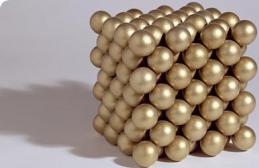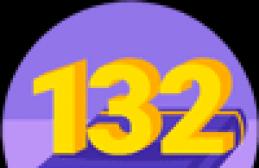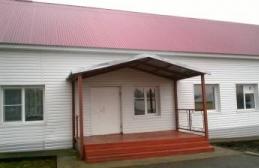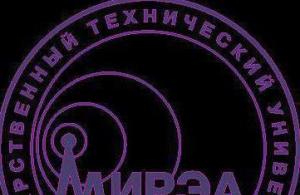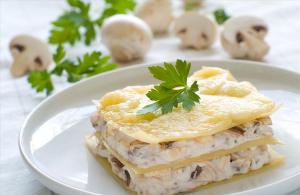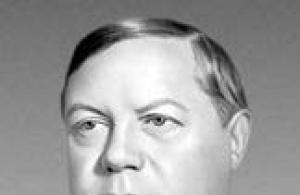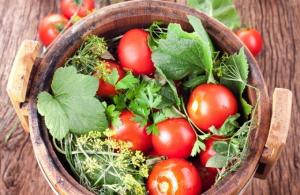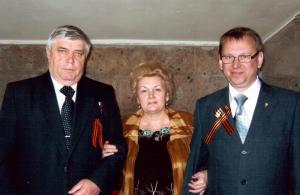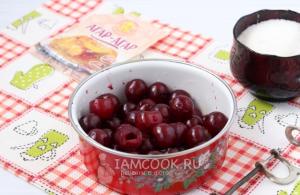Задания составлены для тренировки материала по определенным и неопределенным артиклям для начинающих. Упражнения даны с ответами для проверки своих знаний.
Упражнение # 1
Поставьте артикль х / a / an
1. _ girl
2. _ house
3. _ apple
4. _ ice-cream
5. _ rose
6. _ boy
7. _ milk
8. _ egg
9. _ tree
10. _ eye
11. _ orange
12. _ elephant
13. _ table
14. _ umbrella
15. _ vitamin
16. _ door
17. _ doll
18. _ fish
19. _ cow
20. _ tea
Правильные ответы к упражнению # 1
1. a girl
2. a house
3. an apple
4. an ice-cream
5. a rose
6. a boy
7. (x) milk
8. an egg
9. a tree
10. an eye
11. an orange
12. an elephant
13. a table
14. an umbrella
15. a vitamin
16. a door
17. a doll
18. a fish
19. a cow
20. (x) tea
Упражнение # 2
Поставьте артикли, где они необходимы.
1. Sasha wants … bicycle.
2. I saw … bears.
3. … My car is red.
4. Anna has … cat.
5. I like … sweets.
6. I need … blue pen.
7. My father is … teacher.
8. We live in … Moscow.
9. They have … house.
10. This is … orange.
Правильные ответы к упражнению # 2
1. Sasha wants a bicycle.
2. I saw bears.
3. My car is red.
4. Anna has a cat.
5. I like sweets.
6. I need a blue pen.
7. My father is a teacher.
8. We live in Moscow.
9. They have a house.
10. This is an orange.
Упражнение # 3
Найдите ошибки.
1. a ball
2. an dolls
3. an house
4. a school
5. a TV
6. a water
7. a coffee
8. the Russia.
9. a teachers
10. an advice.
Правильные ответы к упражнению # 3
1. a ball
2. (x) dolls
3. a house
4. (x) school
5. (x) TV
6. (x) water
7. (x) coffee
8. (x) Russia.
9. (x) teachers
10. (x) advice.
Упражнение # 4
Выберите правильные предложения — где артикли расставлены правильно.
a) The your car is nice.
b) We saw Eiffel Tower.
c) He is a Russian gymnast.
d) Dan worked all a Saturday.
e) I don’t watch TV.
f) I sent Anna a email.
g) There are six new people.
h) Do you have pencil?
i) Weather is good a today.
Правильные ответы к упражнению # 4
Правильные предложения: c; e; g;
Предложения с правильно расставленными артиклями:
a) Your car is nice.
b) We saw the Eiffel Tower .
c) He is a Russian gymnast.
d) Dan worked all Saturday.
e) I don’t watch TV.
f) I sent Anna an email.
g) There are six new people.
h) Do you have a pencil?
i) The weather is good today.
Упражнение # 5
Артикли в контексте.
Расставьте артикли, где это необходимо.
1. I planted … tree in … my garden … last year. … tree has now grown big.
2. … Today I saw … my doctor. … doctor said that I should stay … at home for … week.
3. She has … very beautiful daughter. … daughter is 16.
4. I viewed … your video. … video is interesting.
5. I have … cat. … cat is black.
6. What did Kate buy? She bought … new dress.
7. I have … grandmother. … her name is Maria. She likes … flowers very much.
8. There is … pencil on … table. Give me … pencil, please.
9. He told … interesting story. … story was interesting.
10. I live in … Toronto. It’ … my favorite city.
Правильные ответы к упражнению # 5
1. I planted a tree in my garden last year. The tree has now grown big.
2. Today I saw my doctor. The doctor said that I should stay at home for a week.
3. She has a very beautiful daughter. The daughter is 16.
4. I viewed your video. The video is interesting.
5. I have a cat. The cat is black.
6. What did Kate buy? She bought a new dress.
7. I have a grandmother. Her name is Maria. She likes flowers very much.
8. There is a pencil on the table. Give me the pencil, please.
9. He told an interesting story. The story was interesting.
10. I live in Toronto. It’ my favorite city.
1. Поставьте артикли a или an .
1. … elephant 2. … English dictionary 3. … butterfly 4. … German car 5. … Italian bag 6. … American college 7. … Russian city 8. … French designer 9. … Indian river 10. … egg 11. … notebook 12. … elegant lady 13. … ice-cream 14. … Japanese phone
2. Поставьте артикли a/ an или the там, где необходимо.
- I’d like … chicken sandwich and … glass of … mineral water. (Я бы хотел сэндвич с курицей и стакан минеральной воды.)
- Would you like … banana or … strawberries? (Ты хочешь банан или клубнику?)
- She always has … apple, … toast and … cup of … coffee for … breakfast. (Она всегда съедает яблоко, тост и пьет чашку кофе на завтрак.)
- The fly is on … ceiling in … kitchen. (Муха – на потолке на кухне.)
- My mother is … accountant and my father is … lawyer. They work in … same company in … centre of … our town. (Моя мама – бухгалтер, а папа – юрист. Они работают в одной компании в центре нашего города.)
- How much are … her Italian lessons? – Ten dollars … hour. (Сколько стоят ее занятия по итальянскому языку? – Десять долларов в час.)
- Where are … dogs? – They are in … garden. (Где собаки? – Они в саду.)
- … cats like eating … fish. … cows like eating … grass. … birds like eating … insects. (Кошки любят есть рыбу. Коровы любят есть траву. Птицы любят есть насекомых.)
- My favourite subjects are … chemistry and … biology. (Мои любимые предметы – химия и биология.)
- There is … parrot in … cage. And there are … pieces of … fruit in it. (В клетке попугай. И в ней есть кусочки фруктов.)
- My granny lives in … small village in … country. (Моя бабушка живет в маленькой деревушке в сельской местности.)
- Your baby shouldn’t sit in … sun on … hot day. (Вашему малышу не следует сидеть на солнце в жаркий день.)
- Please open … book. … exercise is on … page 68. (Пожалуйста, откройте книгу. Упражнение находится на странице 68.)
- Ann has been looking for … job for … long time. (Аня ищет работу долгое время.)
- What’s … matter? - I missed … 6 o’clock train. (Что случилось? – Я не успел на 6-часовой поезд.)
- Do you like … vegetables? (Ты любишь овощи?)
- … mother has got … terrible headache today. (У мамы сегодня ужасная головная боль.)
- There were … tears in … her eyes. (В ее глазах были слезы.)
- She is … very nice woman but her sons are … bad boys. (Она очень хорошая женщина, но ее сыновья – плохие парни.)
- Look at … woman. She is … neighbor I told you about. (Посмотри на женщину. Это соседка, о которой я тебе говорил.)
3. Поставьте артикли a/ an или the , где необходимо.
- Yesterday I bought … pair of … shoes. Unfortunately … shoes are too tight. (Вчера я купила пару туфель. К сожалению, туфли слишком узкие.)
- We had … dinner in … restaurant … last night. – What is … name of … restaurant? (Вчера ночью мы ужинали в ресторане. – Как называется ресторан?)
- Tony has two children: … boy and … girl. They are … twins. … girl is in … France now. (У Тони двое детей: мальчик и девочка. Они близнецы. Девочка находится сейчас во Франции.)
- Would you like another piece of … cake? – No, … cake is too fat for me. (Хотите еще один кусок торта? – Нет, для меня торт слишком жирный.)
- His office is on … Floor 5. And I live on … tenth floor. (Его офис находится на этаже 5. А я живу на десятом этаже.)
- Little Mike leaves for … school very early because … school is quite far from … his home. (Маленький Майк уходит в школу очень рано, потому что школа довольно далеко от его дома.)
- Lara saw … letter under … door. She read … letter and started crying. (Лара увидела под дверью письмо. Она прочитала письмо и начала плакать.)
- Did you enjoy … food at … party … last Friday? (Тебе понравилась еда на вечере в прошлую пятницу?)
- Roger is … scientist, he works for … government. (Роджер – ученый, он работает на правительство.)
- We go to … gym twice … week. (Мы ходим в спортзал дважды в неделю.)
4. Поставьте артикли там, где необходимо.
- I come to … work by … bus. Today … bus was a bit late. (Я езжу на работу на автобусе. Сегодня автобус немного опоздал.)
- … Jack is … youngest but … cleverest boy at … school. (Джэк – самый младший, но самый умный мальчик в школе.)
- It rained, so I stayed at … home in … evening. But today … sun is shining brightly in … sky. (Шел дождь, поэтому я остался дома вечером. Но сегодня ярко светит солнце в небе.)
- On … Monday … kids were tired and they went to … bed very early. (В понедельник дети устали и пошли спать очень рано.)
- My wife is … best woman in … world and I’m … happiest husband! (Моя жена – лучшая женщина на свете, а я самый счастливый муж!)
- They are having … test on … third of December. (У них будет тест третьего декабря.)
- What … beautiful painting! … artist is such … talented person. (Какая красивая картина! Художник – такой талантливый человек.)
- Robin Hood robbed … rich and helped … poor. (Робин Гуд грабил богатых и помогал бедным.)
- David is … old friend of mine. He plays … guitar perfectly. His sister has been playing … tennis since … age of ten. (Давид - мой старый друг. Он отлично играет на гитаре. Его сестра играет в теннис с 10 лет.)
- … Jacksons live in that lovely cottage with … fantastic garden. (Семья Джэксонов живет в том милом коттедже с фантастическим садом.)
- Sam used … drugs and was sent to … prison in … August. What … shame! (Сэм применял наркотики и был отправлен в тюрьму в августе. Какой позор!)
- … Harrisons are not religious and they never go to … church. (Семья Гаррисонов не религиозна, и они никогда не ходят в церковь.)
- He has been in … hospital for … month. (Он лежит в больнице в течение месяца.)
- … English are very fond of … gardening. (Англичане очень увлекаются садоводством.)
- I’ve tried to learn … Japanese many times. (Я пробовал изучать японский язык много раз.)
- She is … famous actress and she often appears on … TV. (Она – известная актриса и часто появляется на телевидении.)
- It’s such … original idea! Besides you’ve got … good sense of humour. (Это такая оригинальная идея! Кроме того, у тебя хорошее чувство юмора.)
- On … rainy day … castle looks like … prison. (В дождливый день замок выглядит как тюрьма.)
5. Поставьте артикли с именами собственными, если это необходимо.
- … Cairo is … capital of … Egypt. (Каир – столица Египта.)
- It was so picturesque in … Crimea … last summer. (В Крыму было так живописно прошлым летом.)
- ... London stands on … Thames. (Лондон стоит на Темзе.)
- I had … my holiday in … northern Italy … last year but I’m going to cross … Atlantic ocean and visit … USA … next year. (Я провел отпуск в северной Италии в прошлом году, но в следующем году я собираюсь пересечь Атлантический океан и посетить США.)
- … Moon moves round … Earth. (Луна движется вокруг Земли.)
- … Great Patriotic war started in 1941. (Великая Отечественная война началась в 1941 году.)
- … Volga is … longest river in … Russia. (Волга – самая длинная река в России.)
- … Ukraine and … Turkey are separated by … Black sea. (Украину и Турцию разделяет Черное море.)
- My friend usually goes to … Alps in … spring by … plane. (Мой друг обычно ездит в Альпы весной на самолете.)
- … Urals are lower than … Caucasus. (Уральские горы ниже Кавказа.)
- … Great Britain is situated on … two large islands. (Великобритания расположена на двух больших островах.)
- … Christmas and … Easter are my favourite holidays. (Рождество и Пасха – мои любимые праздники.)
- It takes about … hour to get from … Domodedovo airport to … Lenin street. (Требуется около часа, чтобы добраться от аэропорта Домодедово до улицы Ленина.)
- What’s … weather like today in … Australia? (Какая сегодня погода в Австралии?)
- … Colorado river flows through … Grand Canyon. (Река Колорадо протекает через Большой Каньон.)
- My English friend took me to see … National gallery, … Houses of … Parliament and … Tower bridge. (Мой английский друг взял меня посмотреть Национальную галерею, Здания Парламента и Тауэрский мост.)
- … Statue of … Liberty was … present from … French people. (Статуя свободы была подарком от французского народа.)
- … Galaxy where we live is called … Milky Way. (Галактика, в которой мы живем, называется Млечным путем.)
Также разобрать упражнения индивидуально можно с
A и an носят название неопределенного артикля (indefinite article). The носит название определенного артикля (definite article).
Неопределенный артикля a употребляется перед словами, начинающимися с согласного звука: a face, a camera. a используется перед u и eu , когда они произносятся как y (/j/) : a university, a euro.
Неопределенный артикль an употребляется перед словами, начинающимися с гласного звука: an arm, an onion. Также неопределенный артикль an используется перед словами, начинающимися с h , когда h не читается: an hour, an honour.
В скором времени на блоге появится ряд статей, в которых использование артиклей будет рассмотрено подробно. В этой статье рассматриваются только основные моменты.
A/an
Неопределенный артикль a/an произошел от числительного one , и употребляется только с исчисляемыми существительными в единственном числе.
Неопределенный артикль используется в следующих случаях:
- Когда мы говорим о лице и предмете, который упоминается впервые , и неизвестен собеседнику или читателю.
I"ve been to a concert recently. — Недавно я ходил на концерт.
I live in a small town. — Я живу в маленьком городе.
- Когда мы говорим о любом лице или предмете из какого-то класса.
A triangle has three sides. — У треугольника три стороны.
- С названиями профессий или рода деятельности.
My brother is a pilot, and I am a student. — Мой брат — пилот, а я студентка.
The
Определенный артикль the произошел от указательного местоимения that , и употребляется с исчисляемыми существительными как в единственном, так и во множественном числе.
Определенный артикль используется в следующих случаях:
- Когда мы говорим о лице или предмете, который ранее упоминался в разговоре или тексте.
I went outside and saw a car parked in front of my house. The car seemed familiar. — Я вышел на улицу, и увидел припаркованную перед моим домом машину. Машина показалась мне знакомой.
- Когда из контекста или ситуации понятно, о каком именно человеке или предмете мы говорим.
I"m going to the supermarket. — Я собираюсь в супермаркет (в тот, куда я обычно хожу).
Could you open the window? — Открой, пожалуйста, окно (окно в этой комнате).
- Когда мы говорим о лице или предмете, единственном в своем роде .
The Moon revolves around the Earth in an elliptical orbit. — Луна вращается вокруг Земли по эллиптической орбите.
- С прилагательными в превосходной степени.
You are the best mom ever! — Ты самая лучшая мама.
5. Со многими выражениями с of .
In the middle of the night
At the end of my holiday
The и отсутствие артикля
The используется в следующих случаях:
- В названии стран, которые образуются при помощи множественного числа, или в которых есть слова Kingdom или Republic .
the United Arab Emirates, the Netherlands, the United Kingdom
- С названиями всего, что связано с водой: океанов, рек, морей, заливов, проливов (кроме названия отдельных озер, которые употребляются без артикля)
the Baltic Sea, the British Channel, the Pacific Ocean, the Persian Gulf
- С названиями горных хребтов (названия отдельных горных вершин употребляется без артикля).
the Alps, the Apennines
- С названиями частей дня.
in the morning, in the afternoon, in the evening
- Со многими предлогами места и времени.
on the right, at the bottom
Артикль не используется в следующих случаях:
- С названиями большинства стран, городов и континентов
Asia, Saudi Arabia, Beijing
- С названиями отдельных горных вершин и озер
Mountblanc, Lake Titicaca
- С точными указаниями дня, месяца и времени
on Monday, at nine o"clock, in July
- С некоторыми предложными оборотами места
at work, at home, in bed
School, university, hospital, prison, church, etc.
Сравните:
1. Tim is studying maths at university . — Тим изучает математику в университете.
There is a large park not far from the university . — Неподалеку от университета есть большой парк.
2. He will be in hospital for two weeks. — Две недели он будет лежать в больнице.
Is there a chemist"s shop in the hospital ? — В больнице есть аптека?
3. The kids go to school by bus. — Дети ездят в школу на автобусе.
There was a fire at the school last year. — В прошлом году в школе был пожар.
Если кто-то находится в школе/больнице/тюрьме, и так далее, потому что он ученик/пациент/заключенный, то артикль не используется .
Если кто-то находится в школе/больнице/тюрьме по другой причине, или если мы имеем в виду здание, то используется the .
Хорошо ли Вы знаете эту грамматическую тему?
Проверьте себя! Все онлайн-тесты, посвященные правилам употребления артиклей, Вы можете найти .
Запомните следующие правила.Перед каждым нарицательным существительным должен стоять артикль.
Артикль не употребляется, если перед существительным стоит притяжательное (my) или указательное (this) местоимение, другое существительное в притяжательном падеже (father"s), количественное числительное (five) или отрицание "nо"
(не "not"
).
Упражнение 1. Вставьте артикль, где необходимо.
1. This is ... book. It is my ... book. 2. Is this your ... pencil? - No, it isn"t my ... pencil, it is my sister"s ... pencil. 3. I have ... sister. My ... sister is ... engineer. My sister"s ... husband is ... doctor. 4. I have no ... handbag. 5. She has got ... headache. 6. Have they got ... car? - Yes, they have. Their ... car is very expensive but reliable. 7. Have you got ... calculator? - No, I haven"t. 8. Is this ... watch? - No, it isn"t ... watch, it"s ... pen. 9. This ... pen is good, and that ... pen is bad. 10. I can see ... pencil on your ... table, but I can see no ... paper. 11. Give me ... chair, please. 12. They have ... dog and two ... cats. 13. I have ... spoon in my ... plate, but I have no ... soup in it. 14. My ... friend says he is going to be ... millionaire one ... day. 15. Would you like ... orange? 16. Mr. Smith is ... artist, Mrs. Smith is ... poetess.1. This is a book. It is my book. 2. Is this your pencil? - No, it isn"t my pencil, it is my sister"s pencil. 3. I have a sister. My sister is an engineer. My sister"s husband is a doctor. 4. I have no handbag. 5. She has got a headache. 6. Have they got a car? - Yes, they have. Their car is very expensive but reliable. 7. Have you got a calculator? - No, I haven"t. 8. Is this a watch? - No, it isn"t a watch, it"s a pen. 9. This pen is good, and that pen is bad. 10. I can see a pencil on your table, but I can see no paper. 11. Give me a chair, please. 12, They have a dog and two cats. 13. I have a spoon in my plate, but I have no soup in it. 14. My friend says he is going to be a millionaire one day. 15. Would you like an orange? 16. Mr. Smith is an artist, Mrs. Smith is a poetess.
Упоминая предмет впервые, мы употребляем перед ним неопределенный артикль а(аn)
. Упоминая этот же предмет вторично, мы ставим перед ним определенный артикль the
.
E.g. This is a
book. The
book is interesting.
Упражнение 2. Вставьте артикль, где необходимо.
1. Не hasn"t got ... car. But he"s got ... computer. ... computer is new. 2. My ... friends have got ... cat and ... dog. ... dog never bites ... cat. 3. This is ... tree. ... tree is green. 4. I can see three ... boys. ... boys are playing. 5. I have ... bicycle. ... bicycle is black. My ... friend has no ... bicycle. 6. Our ... room is large. 7. We wrote ... dictation yesterday. ... dictation was long. 8. She has two ... daughters and one ... son. Her ... son is ... pupil. 9. Last year I gave my ... mother ... bracelet for her ... birthday. She liked ... bracelet. 10. My ... brother"s ... friend has no ... dog. 11. This ... pencil is broken. Give me that ... pencil, please. 12. She has ... ball. ... ball is ... big. 13. I got ... letter from my ... friend yesterday. ... letter was interesting. 14. When they were in Geneva, they stayed at ... hotel. Sometimes they had dinner at ... hotel and sometimes in ... restaurant. 1. He hasn"t got a car. But he"s got a computer. The computer is new. 2. My friends have got a cat and a dog. The dog never bites the cat. 3, This is a tree. The tree is green. 4. I can see three boys. The boys are playing. 5. I have a bicycle. The bicycle is black. My friend has no bicycle. 6. Our room is large. 7. We wrote a dictation yesterday. The dictation was long. 8. She has two daughters and one son. Her son is a pupil. 9. Last year I gave my mother a bracelet for her birthday. She liked the bracelet. 10. My brother"s friendhas no dog. 11. This pencil is broken. Give me that pencil, please. 12. She has a ball. The ball is big. 13. I got a letter from my friend yesterday. The letter was interesting. 14. When they were in Geneva, they stayed at a hotel. Sometimes they had dinner at the hotel and sometimes in a restaurant. 15. I"ve got an idea. 16. What a surprise!Неопределенный артикль a (an) может употребляться только с исчисляемыми существительными, стоящими в единственном числе. Перед неисчисляемыми существительными или существительными во множественном числе неопределенный артикль опускается. Определенный артикль the употребляется как с исчисляемыми, так и с неисчисляемыми существительными, как с единственным, так и с множественным числом.
E.g. This is a book. The
book is interesting.
The book - исчисляемое в единственном числе
This is × meat. The
meat is fresh.
The meat - неисчисляемое
These are × books. The
books are good .
The books - множественное число
× - отсутствие артикля
Упражнение 3. Вставьте артикль, где необходимо.
1. This is ... pen. ... pen is red. 2. These are pencils. ... pencils are black. 3. This is ... spup. ... soup is tasty. 4. In the morning I eat ... sandwich and drink ... tea. 5. She gave me ... coffee and ... cake. ... coffee was hot. ... cake was tasty. 6. Do you like ... ice cream? 7. I see ... book in your ... hand. Is ... book interesting? 8. Do you need ... camera? 9. He never eats ... meat, he always eats ... vegetables, ... cereals, ... seeds, ... fruit, and ... nuts. He is ... vegetarian. 10. This is ... pineapple. ... pineapple is delicious. 11. Elaine, ... apples are good for you! 12. My ... cousin is upset. He"s got ... sore throat. 13. This is ... cottage cheese. ... cottage cheese is fresh. 14. She bought ... meat, ... butter and ... potatoes yesterday. She also bought ... cake. ... cake was very ... tasty. We ate ... cake with ... tea. 15. This is my ... table. On ... table I have ... book, two ... pencils, ... pen and ... paper. 16. This is ... bag. ... bag is brown. It is my sister"s ... bag. And this is my ... bag. It is ... yellow.1. This is a pen. The pen is red. 2. These are pencils. The pencils are black. 3. This is soup. The soup is tasty. 4. In the morning I eat a sandwich and drink tea. 5. She gave me coffee and a cake. The coffee was hot. The cake was tasty. 6. Do you like ice cream? 7. I see a book in your hand. Is the book interesting? 8. Do you need a camera? 9. He never eats meat, he always eats vegetables, cereals, seeds, fruit, and nuts. He is a vegetarian. 10. This is a pineapple. The pineapple is delicious. 11. Elaine, apples are good for you! 12. My cousin is upset. He"s got a sore throat. 13. This is cottage cheese. The cottage cheese is fresh. 14. She bought meat, butter and potatoes yesterday. She also bought a cake. The cake was very tasty. We ate the cake with tea. 15. This is my table. On the table I have a book, two pencils, a pen and paper. 16. This is a bag. The bag is brown. It is my sister"s bag. And this is my bag. It is yellow.
Запомните следующие словосочетания, в которых артикль не употребляется:
at school - в школе
At home - дома
At work - на работе
Упражнение 4. Вставьте артикль, где необходимо.
1. I have two ... sisters. My ... sisters are ... students. 2. We are at ... home. 3. My ... brother is not at ... home, he is at ... school. 4. My ... mother is at ... work. She is ... doctor. 5. I am not ... doctor. 6. I have no ... sister. 7. He is not ... pilot. 8. I have thirty-two ... teeth. 9. He has ... child. 10. She has two ... children. Her children are at ... school. 11. Is your father at... home? - No, he is at... work. 12. Where is your ... brother? - He is at ... home. I have two sisters. My sisters are students. 2. We are at home. 3. My brother is not at home, he is at school. 4. My mother is at work. She is a doctor. 5. I am not a doctor. 6. I have no sister. 7. He is not a pilot. 8. I have thirty-two teeth. 9. He has a child. 10. She has two children. Her children are at school. 11. Is your father at home? - No, he is at work. 12. Where is your brother? - He is at home.Если перед существительным употребляется прилагательное, оно стоит между артиклем и существительным.
E.g. This is a book. This is a good book.
Упражнение 5. Вставьте артикль, где необходимо.
1. We have ... large ... family. 2. My granny often tells us ... long ... interesting .. stories. 3. My ... father is ... engineer. He works at ... factory. ... factory is large. 4. My ... mother is ... doctor. She works at ... large ... hospital. She is at ... work now. 5. My ... aunt is ... teacher. She works at ... school. ... school is good. My ... aunt is not at ... school now. She is at ... home. She is drinking ... tea and eating ... jam. ... jam is sweet. I am at ... home, too. I am drinking ... tea and eating ... sandwich. ... sandwich is tasty. 6. My sister is at ... school. She is ... pupil. 7. My cousin has ... big ... black ... cat. My cousin"s ... cat has two ... kittens. ... cat likes ... milk. ... kittens like ... milk, too. 8. I am ... engineer. 9. My ... son is ... pupil. 10. He is ... good ... pupil. 11. This is ... house. 12. This is my ... pencil. 13. You have some ... pencils, but I have no ... pencil. Give me ... pencil, please.1. We have a large family. 2. My granny often tells us long interesting stories. 3. My father is an engineer. He works at a factory. The factory is large. 4. My mother is a doctor. She works at a large hospital. She is at work now. 5. My aunt is a teacher. She works at school. The school is good. My aunt is not at school now. She is at home. She is drinking tea and eating jam. The jam is sweet. I am at home, too. I am drinking tea and eating a sandwich. The sandwich is tasty. 6. My sister is at school. She is a pupil. 7. My cousin has a big black cat. My cousin"s cat has two kittens. The cat likes milk. The kittens like milk, too. 8. I am an engineer. 9. My son is a pupil, 10. He is a good pupil. 11. This is a house. 12. This is my pencil. 13. You have some pencils, but I have no pencil. Give me a pencil, please. 14. What a pity! I can"t come to the party tonight.
Часто, даже упоминая предмет впервые, мы тем не менее употребляем перед ним определенный артикль:
а) если упоминаемый предмет является единственным в мире
E.g. The sun is shining brightly. - Солнце светит ярко
б) если этот предмет является определенным по ситуации
E.g. Put the book on the table. - Положи книгу на стол.
Упражнение 6. Вставьте артикль, где необходимо.
1. What"s ... weather like today? - ... weather is fine. 2. ... sun is yellow. 3. ... sky is grey today. 4. ... Earth is ... planet. 5. We had ... English lesson yesterday. ... teacher asked me many ... questions. ... questions were difficult. 6. Where is your ... brother? - Не is at... home. Не is in his ... room. He is sitting at ... table. He is doing his ... homework. ... homework is difficult. 7. Our ... cat is sitting on ... sofa. 8. It is very dark in ... room. Turn on ... light, please. 9. Nick went into ... bathroom, turned on ... water and washed his ... hands. 1. What"s the weather like today? - The weather is fine. 2. The sun is yellow. 3. The sky is grey today. 4. The Earth is a planet. 5. We had an English lesson yesterday. The teacher asked me many questions. The questions were difficult. 6. Where is your brother? - He is at home. He is in his room. He is sitting at the table. He is doing his homework. The homework is difficult. 7. Our cat is sitting on the sofa. 8. It is very dark in the room. Turn on the light, please. 9. Nick went into the bathroom, turned on the water and washed his hands.Упражнение 7. Вставьте артикль, где необходимо.
1. This is ... good ... book. Take ... book from ... table. Put this ... book into ... bookcase. 2. ... weather is fine today. ... sky is blue. ... sun is shining brightly in ... blue ... sky. 3. This is ... boy. ... boy is at ... school. He is ... pupil. This ... boy is my ... brother"s ... friend. He has ... cat, but he has no ... dog. He likes his ... cat. He gives ... cat ... milk every day. 4. Yesterday I received ... letter from my ... friend. ... letter was interesting. 5. We live in... big house. I like ... house very much. 6. Are you ... worker? - No, I am ... student. 7. I like your ... beautiful ... flower. Give me ... flower, please. 8. My ... mother is at ... home. She is reading ... interesting ... book. 9. My ... father is not at ... home. He is at ... work. He is ... doctor. He is ... good ... doctor. He works at ... hospital. ... hospital is large. 1. This is a good book. Take the book from the table. Put this book into the bookcase. 2. The weather is fine today. The sky is blue. The sun is shining brightly in the blue sky. 3. This is a boy. The boy is at school. He is a pupil. This boy is my brother"s friend. He has a cat, but he has no dog. He likes his cat. He gives the cat milk every day. 4. Yesterday I received a letter from my friend. The letter was interesting. 5. We live in a big house. I like the house very much. 6. Are you a worker? - No, I am a student. 7. I like your beautiful flower. Give me the flower, please. 8. My mother is at home. She is reading an interesting book. 9. My father is not at home. He is at work. He is a doctor. He is a good doctor. He works at a hospital. The hospital is large.Кроме того существует огромное количество так называемых "застывших словосочетаний," в которых артикль употребляется или отсутствует традиционно. Эти словосочетания приходится заучивать наизусть.
Запомните следующие конструкции.
There is a ____.
Where is the ____ ?
Запомните также следующие предложения:
The (book) is on the (table).
Ho: The (book) is on a little (table)
Существительное, стоящее в скобках, может быть любым. Прилагательное также может быть любым. Вместо предлога "on " может быть любой другой предлог иди заменяющее его словосочетание, напр., "in front of ".
Упражнение 8. Вставьте артикль, где необходимо.
1. There is ... big tree in ... garden. 2. There is ... bank near here. - Where is ... bank? 3. There is ... new supermarket in ... centre of our ... town. 4. There is ... hotel over there. ... hotel isn"t cheap. 5. Where is ... cat? - ... cat is on ... sofa. 6. Where is ... book? - ... book is on ... shelf. 7. Where are ... flowers? - ... flowers are in ... beautiful vase. 8. Where is ... vase? - ... vase is on ... little table near ... window. 9. Open ... window, please. ... weather is fine today. I can see ... sun in ... sky. I can see ... nice little bird. ... bird is sitting in ... big tree. ... tree is green. 10. There is ... little white cloud in ... sky. 11. We have ... large room. There is ... big sofa in ... room and ... little lamp on ... wall over ... sofa. I like to sit on ... sofa and read ... good book. 1. There is a big tree in the garden. 2. There is a bank near here. - Where is the bank? 3. There is a new supermarket in the centre of our town. 4. There is a hotel over there. The hotel isn"t cheap. 5. Where is the cat? - The cat is on the sofa. 6. Where is the book? - The book is on the shelf. 7. Where are the flowers? - The flowers are in a beautiful vase. 8. Where is the vase? - The vase is on a little table near the window. 9. Open the window, please. The weather is fine today. I can see the sun in the sky. I can see a nice little bird. The bird is sitting in a big tree. The tree is green. 10. There is a little white cloud in the sky. 11. We have a large room. There is a big sofa in the room and a little lamp on the wall over the sofa. I like to sit on the sofa and read a good book.Запомните следующее застывшее словосочетание:
in front of - перед
Упражнение 9. Вставьте артикль, где необходимо.
1. There is ... wonderful small computer in ... front of ... books there. 2. Where is ... soup? - ... soup is in ... big saucepan on ... gas cooker. 3. Where are ... cutlets? - ... cutlets are in ... refrigerator on ... little plate. 4. There is no ... bread on ... table. Where is ... bread? 5. There is ... little brown coffee table in our ... room in ... front of ... sofa. 6. Where is ... table in your ... room? 7. There is ... thick carpet on ... floor in my mother"s ... room. 8. Is your brother at ... home? - No, he is at ... work. He works at... big factory. He is ... engineer. 9. My sister has many ... books. ... books are in ... big bookcase. 10. ... weather is fine today. Let"s go and play in ... yard. There are many ... children in ... yard. They are playing with ... ball.1. There is a wonderful small computer in front of the books there. 2. Where is the soup? - The soup is in a big saucepan on the gas cooker. 3. Whete are the cutlets? - The cutlets are in the refrigerator on a little plate. 4. There is no bread on the table. Where is the bread? 5. There is a little brown coffee table in our room in front of the sofa. 6. Where is the table in your room? 7. There is a thick carpet on the floor in my mother"s room. 8. Is your brother at home? - No, he is at work. He works at a big factory. He is an engineer. 9. My sister has many books. The books are in a big bookcase. 10. The weather is fine today. Let"s go and play in the yard. There are many children in the yard. They are playing with a ball.
Запомните следующие конструкции, требующие неопределенного артикля:
I have a ____ . У меня есть ____ . This is a ____ . Это ____ . I am а ____ . Я ____ . Не has а ____ . У него есть ____ . That is а ____ . То ____ . Не is а ____ . Он ____ . I see а ____ . Я вижу ____ . It is а ____ . Это ____ . She is а ____ . Она ____ .
There is а ____ . Где-то находится (есть) что-то.
Вместо ____ нужно поставить существительное в единственном числе.
Упражнение 10. Вставьте артикль, где необходимо.
1. I see ... bottle of ... pineapple ... juice on ... kitchen table. 2. Her ... son has ... great ... sense of ... humor. 3. There was ... discotheque at ... club last Saturday but he didn"t go. 4. Is there ... bus stop near ... building? 5. We have ... big dog. ... dog is very clever. 6. My friend has ... very good computer. 7. This ... boy is big. He is ... student. 8. There is ... very big piano in ... hall. 9. This is ... tree and that is not ... tree. It"s ... bush. 10. I am ... boy. I am ... pupil. I learn at ... school. 11. My sister is at... work. She is ... secretary. She works at ... large office. 12. This is ... very difficult question. I don"t know ... answer to it. 13. Do you see ... little girl with ... big ball in her ... hands? She is ... pupil of our ... school. 14. There was ... beautiful flower in this ... vase yesterday. Where is ... flower now? 15. Last year we were in Geneva. It is ... exciting city to visit, but ... very expensive place to live.1. I see a bottle of pineapple juice on the kitchen table. 2. Her son has a great sense of humor. 3. There was a discotheque at the club last Saturday but he didn"t go. 4. Is there a bus stop near the building? 5. We have a big dog. The dog is very clever. 6. My friend has a very good computer. 7. This boy is big. He is a student. 8. There is a very big piano in the hall. 9. This is a tree and that is not a tree. It"s a bush. 10. I am a boy. I am a pupil. I learn at school. 11. My sister is at work. She is a secretary. She works at a large office. 12. This is a very difficult question. I don"t know the answer to it. 13. Do you see a little girl with a big ball in her hands? She is a pupil of our school. 14. There was a beautiful flower in this vase yesterday. Where is the flower now? 15. Last year we were in Geneva. It is an exciting city to visit, but a very expensive place to live.
Запомните следующие застывшие словосочетания:
in the middle - посередине
in the corner - в углу
to the right - направо
to the
left - налево
Упражнение 11. Вставьте артикль, где необходимо.
1. There is ... jar of ... orange ... marmelade in ... middle of ... shelf. 2. There is ... big ... box of ... cereal to ... right of you. 3. There is ... bunch of ... bananas on ... table. Don"t keep them in ... refrigerator. 4. There is ... loaf of ... white ... bread on ... upper ... shelf of ... refrigerator. If you want your ... bread to be fresh, keep it only in ... refrigerator. 5. Is there ... bag of ... flour in ... cupboard? 6. There was ... bottle of ... lemonade in ... corner of ... kitchen. 7. There is ... thick red ... carpet in my ... room. ... carpet is on ... floor in ... front of ... sofa. 8. Where is ... table in your brother"s ... room? - His ... table is near ... window. 9. I can see ... fine ... vase on ... shelf. Is it your ... vase? 10. We have no ... piano in our ... living room. 11. My ... uncle is ... married. He has ... beautiful wife. They have ... son, but they have no ... daughter. 12. I can see ... nice ... coffee table in ... middle of ... room to ... right of ... door. It is ... black and ... red. I like ... coffee table. 13. Our ... TV set is on ... little ... table in ... corner of ... room. 14. There is... beautiful picture in my father"s ... study. ... picture is on ... wall to ... left of ... window. 1. There is a jar of orange marmelade in the middle of the shelf. 2. There is a big box of cereal to the right of you. 3. There is a bunch of bananas on the table. Don"t keep them in the refrigerator. 4. There is a loaf of white bread on the upper shelf of the refrigerator. If you want your bread to be fresh, keep it only in the refrigerator. 5. Is there a bag of flour in the cupboard? 6. There was a bottle of lemonade in the corner of the kitchen. 7. There is a thick red carpet in my room. The carpet is on the floor in front of the sofa. 8. Where is the table in your brother"s room? - His table is near the window. 9. I can see a fine vase on the shelf. Is it your vase? 10. We have no piano in our living room. 11. My uncle is married. He has a beautiful wife. They have a son, but they have no daughter. 12. I can see a nice coffee table in the middle of the room to the right of the door. It is black and red. I like the coffee table. 13. Our TV set is on a little table in the corner of the room. 14. There is a beautiful picture in my father"s study. The picture is on the wall to the left of the window. 15. What a picture!Упражнение 12. Вставьте артикль, где необходимо.
My aunt"s flat is in ... new house. There is ... living room, ... bedroom, ... study, ... bathroom and ... kitchen in ... flat. ... bedroom is ... large room with ... two windows. ... room is light as ... windows are large. There are ... white curtains on ... windows. There are ... two beds with ... large pillows on them. There are ... small tables near ... beds. There are ... lamps on them. To ... left of ... door there is ... dressing table with ... mirror on it. There is ... low chair at ... dressing table. There are ... several pictures on ... pale green walls. There is ... thick carpet on ... floor. ... carpet is dark green. ... room is very cosy.My aunt"s flat is in a new house. There is a living room, a bedroom, a study, a bathroom and a kitchen in the flat. The bedroom is a large room with two windows. The room is light as the windows are large. There are white curtains on the windows. There are two beds with large pillows on them. There are small tables near the beds. There are lamps on them. To the left of the door there is a dressing table with a mirror on it. There is a low chair at the dressing table. There are several pictures on the pale green walls. There is a thick carpet on the floor. The carpet is dark green. The room is very cosy.
Если после конструкции there is (there are) стоит неисчисляемое существительное или существительное во множественном числе, вместо опущенного неопределенного артикля часто (не обязательно) употребляется слово " some."
Упражнение 13. Вставьте артикль, где необходимо.
1. There is ... park behind ... hospital. There are ... beautiful ... trees in ... park. 2. There is ... good ... film on TV this ... evening. I am going to watch it. 3. There is ... library between ... school and ... bank. There are ... English and German books in this ... library. 4. There is ... sofa in ... corner of ... room. 5. There are ... cushions on ... sofa. 6. There are ... books on ... shelf. Give me ... book, please. 7. Look into ... refrigerator. What can you see on ... shelves? - There is ... butter in ... butter dish. There is ... sausage, but there is no ... cheese. There are ... eggs and ... apples. There is ... orange, ... lemon, and ... jam in ... little vase. 8. There is ... juice in this ... cup. May I drink ... juice? 9. There are ... girls in ... yard, but I can see no ... boys. Where are ... boys? - Oh, all ... boys are playing football at ... stadium. 10. There is ... peculiar charm in her ... voice. 1. There is a park behind the hospital. There are some beautiful trees in the park. 2. There is a good film on TV this evening. I am going to watch it. 3. There is a library between the school and the bank. There are some English and German books in this library. 4. There is a sofa in the corner of the room. 5. There are some cushions on the sofa. 6. There are some books on the shelf. Give me a book, please. 7. Look into the refrigerator. What can you see on the shelves? - There is some butter in the butter dish. There is some sausage, but there is no cheese. There are some eggs and some apples. There is an orange, a lemon, and some jam in a little vase. 8. There is some juice in this cup. May I drink the juice? 9. There are some girls in the yard, but I can see no boys. Where are the boys? - Oh, all the boys are playing football at the stadium. 10. There is a peculiar charm in her voice. 11. There is (some) money in the purse.Артикль является одним из определителей имени существительного и ставится перед существительным или перед словами, являющимися определениями к нему.
Неопределённый артикль a (an - перед словами, начинающимися с гласной) происходит от числительного one и означает один из многих, какой-то, любой.
I am a student. Я студент (один из многих).
This is an apple. Это - яблоко (какое-то одно из многих).
Если перед существительным в единственном числе стоит неопределённый артикль, то во множественном числе он опускается.
This is a book. These are books.
Таким образом, неопределённый артикль a(an) может употребляться только перед существительными в единственном числе.
Определённый артикль the происходит от указательного местоимения that. Часто переводится словами этот, эта, это, эти. Употребляется перед существительными как в единственном, так и во множественном числе.
Определённый артикль употребляется:
Когда речь идёт об определённом лице или предмете.
Where is the pen? Где ручка? (известная нам)
Перед существительным, если ему предшествует прилагательное в превосходной степени или порядковое числительное.
What is the longest river in the world? He was the first to come.
Перед географическими названиями (названиями океанов, морей, рек, горных хребтов, частей света и т.д.).
The Indian ocean, the Baltic sea, the North, the Thames, the Alps.
Перед существительными, единственными в своём роде.
What is the highest mountain in the world?
В ряде выражений, таких как
in the morning, in the evening, in the afternoon, etc.
Если вы упоминаете о каком-либо предмете в первый раз, используйте артикль a (an). В следующий раз при упоминании данного предмета, сообщении деталей, используйте the.
I have a dog.
The dog is black and has white ears.
Нулевой артикль. Артикли не употребляются:
Если какое-либо существительное употребляется в самом обобщённом значении.
Crime is a probem in most big cities. Преступность как таковая, а не какое-то конкретное преступление.
Life has changed a lot in the last two years. Жизнь как таковая, вообще.
Перед именами собственными (названиями стран, городов, штатов, провинций, озер, горных пиков; исключение составляет объединение штатов или множественное число в названии, например, The United States, The Netherlands):
England, Russia, London, Mr. Johnson, Tuscany.
Однако, перед фамилиями, употребляемыми во множественном числе для обозначения членов одной и той же семьи, употребляется определённый артикль.
The Johnsons. Семья Джонсонов.
Перед названиями времён года, месяцев и дней недели.
He always goes the South in summer. English classes are on Monday.
В случаях, когда речь идет о приеме пищи, использовании транспорта, а также, если речь идет о местах (например: дом, работа, больница, университет, церковь, тюрьма и т. д.)
I go home by bus.
I go to school. (I am a student)
We have dinner at 2 o’clock.
В предыдущем примере – I go to school артикль не употребляется, так как подразумевается, что I am a student, следовательно, цель похода в школу кроется в цели самого здания – учеба.
Но возможна и такая ситуация I go to the school. В данном случае это означает, что цель визита в школу иная. Например, I go to the school, because I want to see the head master.
My mother is in hospital now. (She’s ill.)
Every day I go to the hospital to see her.

